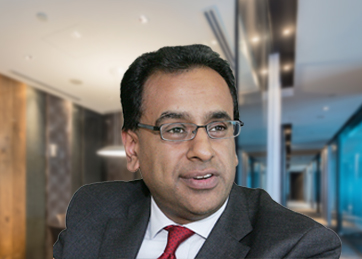BDO: Fraud cases expected to rise in Scotland this year

Sat Plaha
Fraud cases in Scotland are expected to rise this year as fraudsters are increasingly taking advantage of the coronavirus outbreak, according to a new report from accountancy and business advisory firm BDO.
Fraudsters are understood to be taking advantage of the COVID-19 outbreak, with mass home working and operational shifts to e-commerce opening up new opportunities for criminals to target companies.
BDO has also found that the total value of fraud in Scotland has increased by 76 per cent to £54 million in 2019, up from £30.4m in the previous year.
The average value of fraud in Scotland last year was £1.4m, below the national average of £3.6m. Notable cases of fraud in Scotland include a ‘Ponzi scheme’ that defrauded investors of funds worth £12.8m and a case investigated by HMRC and Scottish Police involving a £12m VAT and money laundering scam.
This analysis, based upon reported fraud cases over £50,000 in the UK, reveals that the UK-wide picture shows a rise in value, but the number of reported cases has dropped by 12 per cent. There were 464 cases of fraud reported in 2019 compared with 525 in 2018, with 38 of these taking place in Scotland.
Sat Plaha, partner and regional head of forensics at BDO, said: “Despite the decline in fraud value and volume in Scotland last year, COVID-19 has provided a fertile breeding ground for fraudulent activity and we’re anticipating a spike in cases this year.
“Now more than ever, companies and individuals must remain vigilant and sceptical in order to protect themselves. Firms should focus on controls, must not ignore red flags, and need to be confident enough to challenge in the way they did prior to this pandemic in order to remain safe.”
Fraud relating to the unauthorised or misuse of assets recorded the highest total value across the UK, rising from £115m in 2018 to £671m in 2019.This increase was largely down to two significant cases, one including a collapsed investment firm owing money to 11,600 savers, and the second involving a businessman who defrauded investors and his company out of £250m.
The second highest value related to third-party fraud, which more than doubled in a year, bringing the total value to just over £522m up from £181m in 2018. A large number of these cases relate to employees or suppliers of businesses.
Not all types of fraud saw a rise in value, with cases relating to tax and to theft and cash fraud dropping by 13 per cent and nine per cent in value, bringing the total cost of fraudulent activity in these areas in 2019 to £116m and £29m respectively.
Ms Plaha added: “We know that these figures are the tip of the iceberg and as many as one in five frauds go unreported, with businesses often keen to avoid the reputational damage that fraudulent activity can bring. With third-party and employee fraud increasing in value and many businesses shifting priorities and acclimatising to new ways of working, business leaders and individuals must remain more vigilant than ever. It is vital to have a healthy level of scepticism and robust controls and procedures to manage the risk of both internal and external fraud.”




